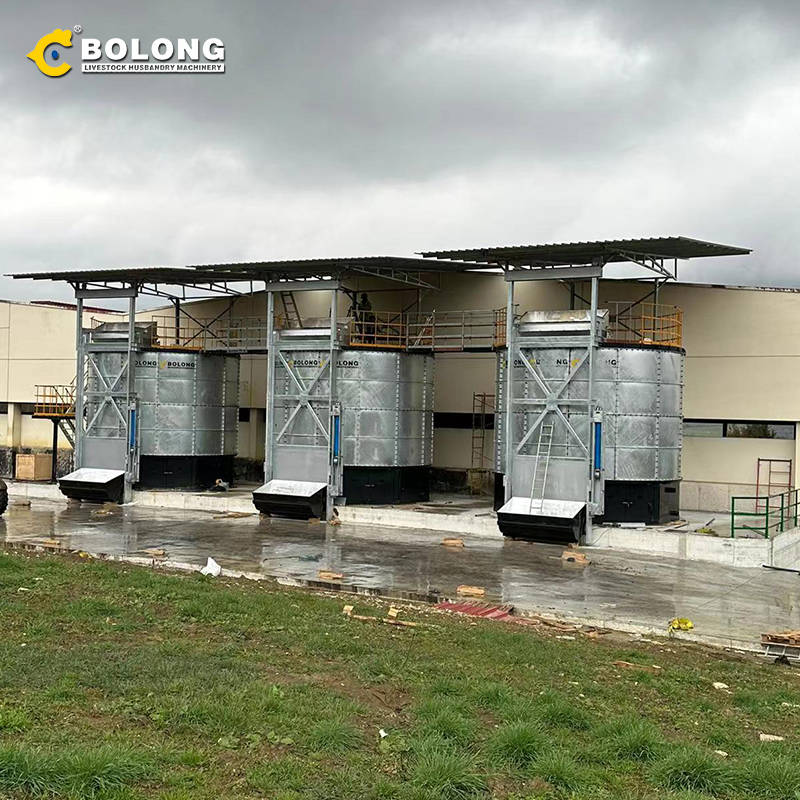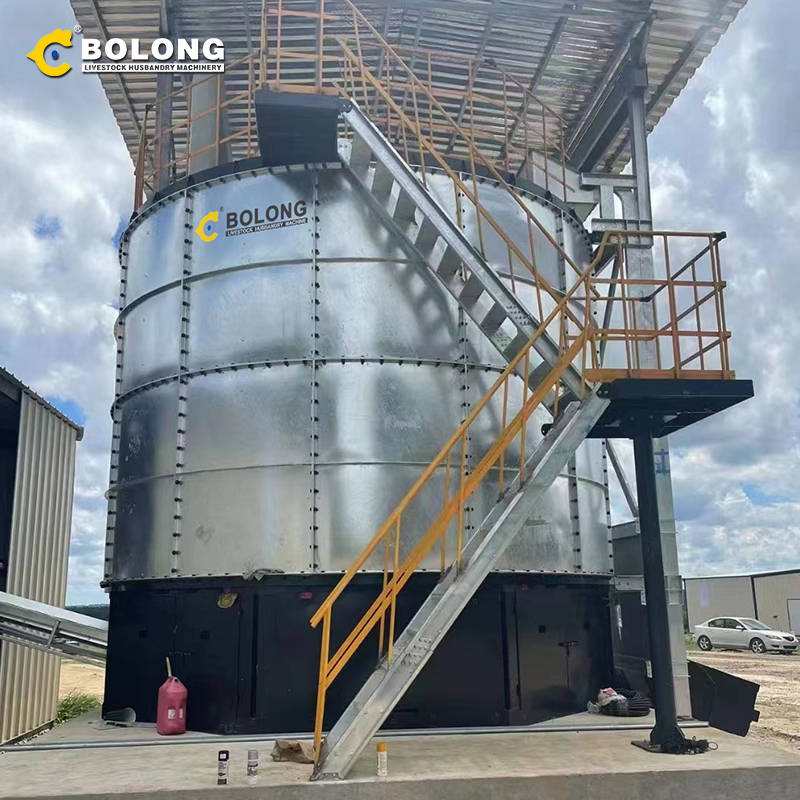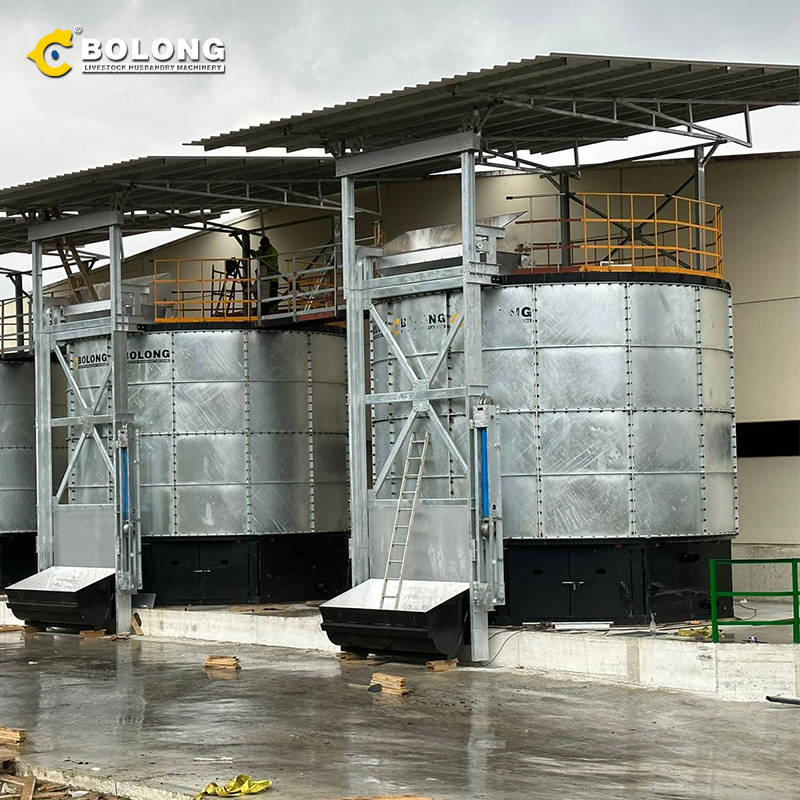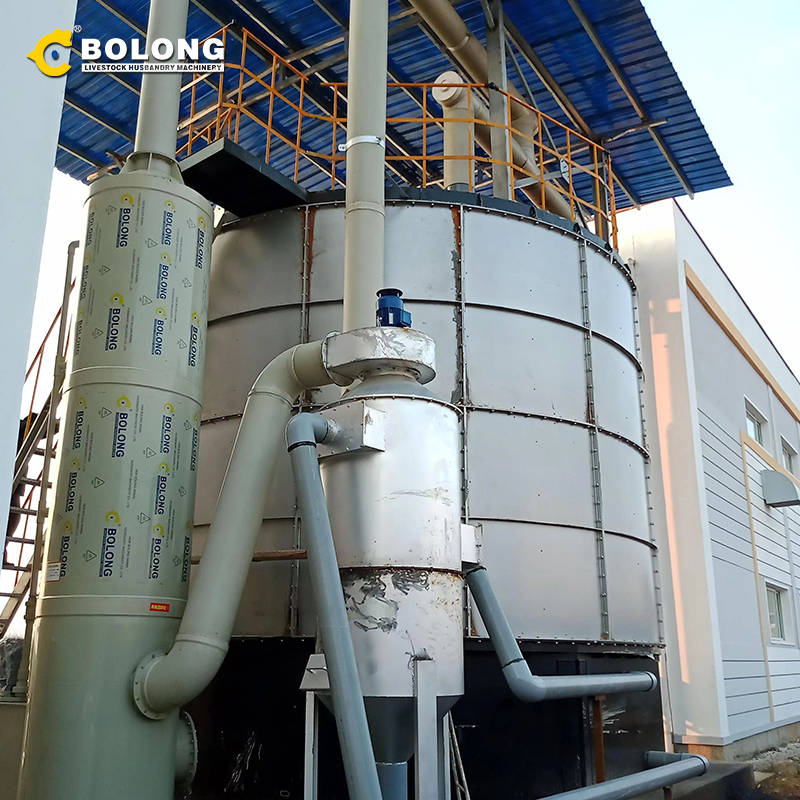With the rapid development of large-scale breeding industry, the problem of livestock and poultry waste treatment has become increasingly prominent. The accumulation of a large amount of feces and organic waste not only pollutes the breeding environment, but also has a negative impact on the surrounding ecosystem. How to efficiently and environmentally friendly treat these wastes has become a difficult problem that large-scale breeding companies need to solve urgently. As a modern waste treatment equipment, organic fertilizer composting machines have gradually become the preferred solution in large-scale breeding due to their high efficiency and environmental protection.
Large-scale farms produce a huge amount of livestock and poultry manure every day. Taking a pig farm with 10,000 heads as an example, a large amount of manure can be produced every day. These manures contain a large amount of organic matter, nitrogen, phosphorus, potassium and other nutrients, as well as pathogens and parasite eggs. If not treated, these wastes will become an important source of environmental pollution.
The direct discharge of untreated livestock and poultry manure will lead to eutrophication of water bodies, acidification of soil, and release of a large amount of harmful gases such as ammonia and hydrogen sulfide, affecting air quality. In addition, pathogenic microorganisms in feces may also cause animal diseases and threaten the biological safety of farms.

The design of organic fertilizer composting machines fully considers the actual needs of large-scale farms. Its capacity can be flexibly adjusted according to the scale of the farm, and can meet the waste treatment needs of farms of different sizes. For example, a large chicken farm uses a large-capacity composting machine, which significantly improves the waste treatment efficiency.
The organic fertilizer composting machine not only has efficient fermentation capacity, but also is equipped with special functions such as temperature control, ventilation system and deodorization device. These functions ensure the efficiency and environmental protection of the fermentation process, while reducing the impact of odor on the farm and the surrounding environment.

Waste collection: livestock and poultry manure is collected and transported to the composting machine through automated equipment.
Pretreatment: solid-liquid separation of manure, removal of impurities and adjustment of moisture content.
Fermentation treatment: the pretreated manure is put into the composting machine, and pathogens and insect eggs are killed by high-temperature fermentation.
Finished product output: after a period of fermentation, the waste is converted into high-quality organic fertilizer, which can be directly used in farmland or further processed.
Temperature monitoring: ensure that the temperature in the composting machine is stable to avoid incomplete or excessive fermentation.
Ventilation management: regularly check the ventilation system to ensure sufficient oxygen supply and promote microbial activity.
Equipment maintenance: regularly clean the inside of the composting machine to prevent blockage and corrosion and extend the service life of the equipment.

Taking a large-scale pig farm as an example, the cost of waste treatment has been significantly reduced after the use of organic fertilizer composting machines. In addition, the organic fertilizer produced can also be sold as an additional product to further increase income.
The application of organic fertilizer composting machines significantly reduced the odor and harmful gas emissions of farms. After a farm used a composting machine, the surrounding air quality improved significantly and the resident complaint rate dropped significantly. At the same time, the promotion and use of organic fertilizers also improved the soil structure and increased the fertility of farmland.

The application of organic fertilizer composting machines in large-scale breeding not only solves the problem of waste disposal, but also brings significant economic and environmental benefits to enterprises. With the continuous advancement of technology, organic fertilizer composting machines will play a more important role in the future breeding industry and provide strong support for the realization of green breeding and sustainable development.